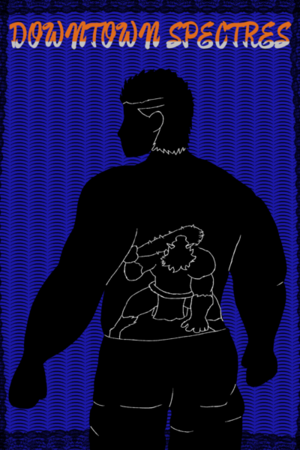Chapter 24:
Ky'anth II
Literary Tense
“So. I was referred to you by our cell leader.”
I nodded.
“This restaurant isn’t just a restaurant. Well, for one, it’s a way to give refugees jobs…for another, it’s a front.”
“Right.”
He put down the menu he was holding and dug in a drawer for another. He held it out—it looked practically the same. But squinting at it like a game of spot-the-difference, I could tell that certain letters were bolded.
“When someone orders here, pay attention to the first thing they say. If it’s ‘espresso’, that means they’re beginning a coded message.”
Apparently, Ry’keth had espresso, or something similar enough for my brain to translate it as that. “And then what?”
“Their next orders will create a message with the bolded letters. Sometimes, it might happen by accident. Help and Loss or Win and so forth aren’t too hard to spell out, but the espresso code helps with that.”
“Right.”
“Just report anything that makes a coherent message to me.”
It was an odd system, but it should work. The Ry’ke’si abjad helped with that. If it was English, they’d have to order a lot of dishes just to spell a word like “advance” or a name like “Ky’sy’ana”. Here, words were usually one to three consonants, four or five at the max.
Over the next week, I settled into a comfortable life at the restaurant. It was an interesting and not unwelcome change from the past six weeks, which had been characterized mostly by travel and living rough.
Every day, the sun coaxed me awake. I’d open one eyelid to the bright light, remember I had to work, and roll out of bed. I’d throw on some clothes and go down to the public toilets and then every other day the public baths, which cost a few copper, were like a spa with multiple bathing areas, and were mixed-gender but with different times for different races. I was really getting sick of that segregated system, and heard of a bathhouse further east in the city that didn’t discriminate, but I didn’t have the time to walk a mile so I ended up sticking with the racist one.
The workers there were mostly Asan—a few Ry’ke, a few from other countries. The Ry’keth empire hadn’t outlawed slavery. In fact, it was a large motivator for their conquests. They had a capitalist system and a level of technology which economically demanded unpaid labor and a large population, but complete gender equality, so all women were paid equally and often chose not to have children. Collecting prisoners of war was one of their solutions. I didn’t know if the small groups of people I saw, heads bent scrubbing bath tiles, were enslaved. But it was likely.
After I came back dressed and clean and shaking off a lingering feeling of guilt, I was usually sent out to shop, as I’d been discovered to be near-unable to cook but not a horrible grocery shopper. The markets, at least, weren’t bad. They were the opposite of the sterile supermarkets that I’d bought groceries at before being transported here. Instead of being cold from air conditioning, the hot air glowed even hotter with stalls’ individual stoves and ovens, as vendors hawked their street food, and tables overflowed with fresh fruits and vegetables that could have been harvested out of the sellers’ backyards.
Jy'kanh told me cheerfully that prices were lower lately, especially for corn and peppers.
“Why?”
“Because we don’t have to pay all of those taxes to Asania anymore! And their merchants would always overcharge, too…”
After I came back, I was put on chopping and pot-watching duty if the kitchen was especially busy, and on table-waiting if one of the ordinary waiters was out.
It took until my fourth day to catch a message.
A Ry’ke woman around my age waved me over and said, “Uh…can I get an espresso?” so naturally I was taken aback. I nodded and asked, “What else?”
“Let’s see…mango sticky rice, and sweet and sour chicken, please?”
“You got it. Sounds good?”
“Yep, that’s all.”
Mango sticky rice… on the Ry’ke’si menu, the highlighted letter was Ng, and for sweet and sour chicken, it was S. I ran the combinations in my mind as I took the order back to the kitchen—we were still going to make the coded orders, of course, otherwise it’d blow the cover—and went to attend to more customers.
Ngysa, mango. Nges, a boar. Ngasi, “wait”—it must be that one! That made total sense as a message!
I reported it back to Jy'kanh. He nodded seriously and told me “thank you for telling me”. Over the next few days, nothing seemed to happen around it. But that made sense, didn’t it? It was the word wait.
Over those few days, I also started to notice somebody tailing me.
It began as just a feeling of being watched. A prickling at the back of my neck…an uneasy feeling, then footsteps and rattling of clothing I would hear, turn around to look at, and then find that there wasn’t anyone there. At first I just thought I was being paranoid, but then I remembered how perilous the situation was for Ky'cina’s people. If I was being watched, I’d better do something about it.
So, on the seventh day of my stay in Ky’an’th, I asked for the day off and rented a horse from the nearby stables. I wanted to go somewhere isolated, where my stalker—if there was a stalker—wouldn’t have any plausible deniability for being there.
That was harder than it seemed. In contrast to my home province, the cities of this world were smaller and more mixed with greenery—but in contrast to the modern world, there weren’t huge strips of corporation-owned farmland with minimal employees cut through with highways where you weren’t supposed to get out of your car. Mining was also an active industry around Ky’an’th, as well as farming, hunting and gathering, timber…there weren’t many regulations on how to treat the environment. Ry’ke religion viewed the environment as sacred but the state’s ruler as supreme.
But I’d eventually figured out a route that, if I left out a certain gate, would take me deep into the jungle and away from anyone.




Please sign in to leave a comment.